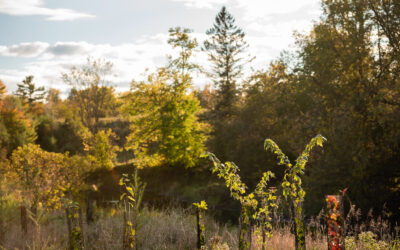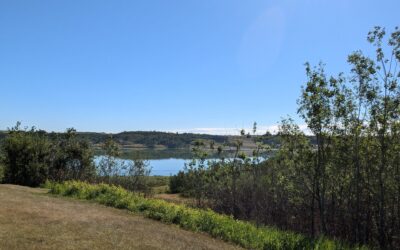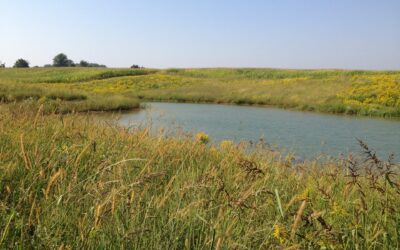Farmers play a key role in delivering flood prevention and water quality improvements in Ontario.
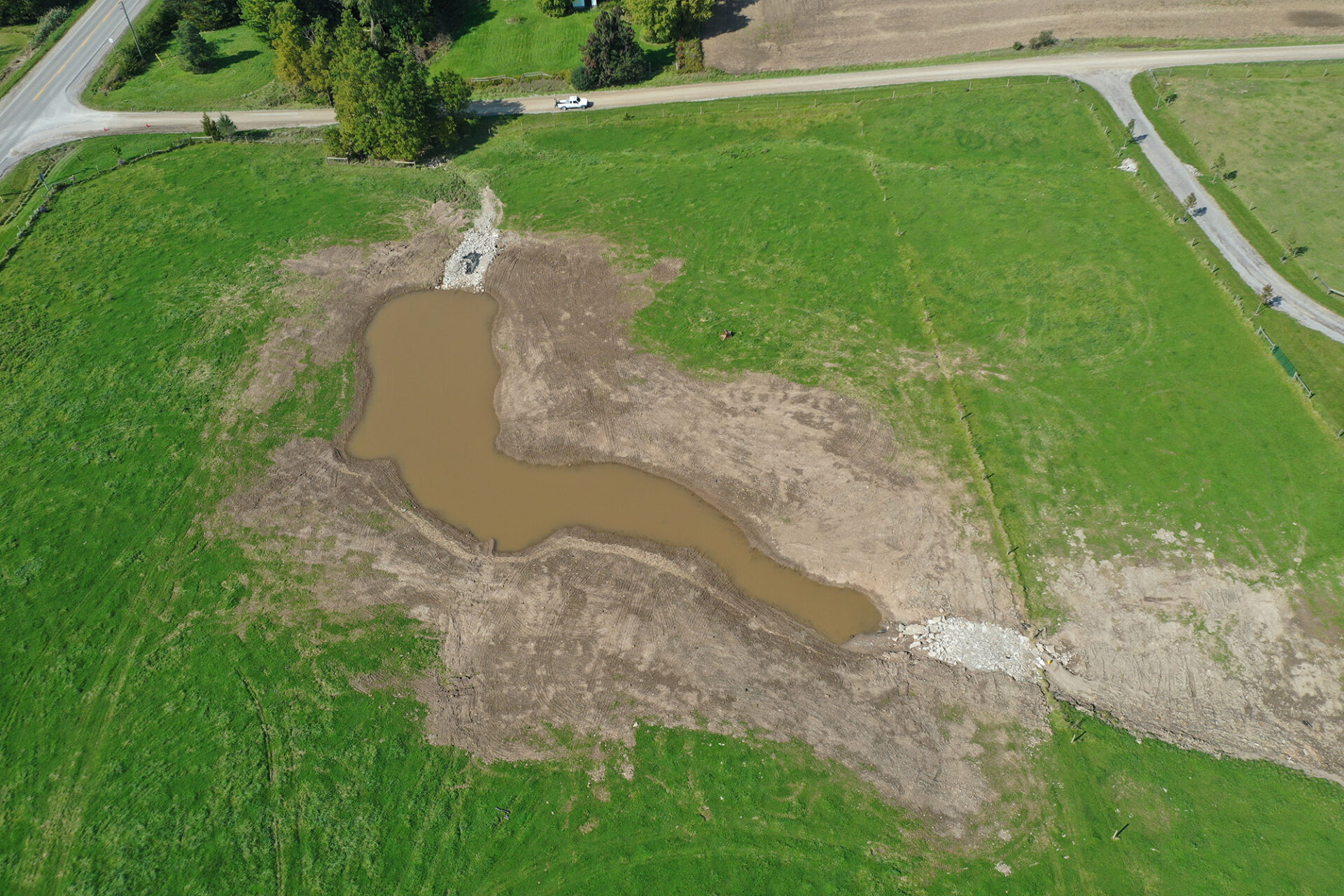
A wetland restoration project under construction in Middlesex County. Photo Credit: ALUS Middlesex.
Toronto, ON, June 18, 2024 — Today, Ontario’s Minister of the Environment, Conservation and Parks, Andrea Khanjin, announced over $2.8 million in funding from the Wetlands Conservation Partner Program (WCPP). With this funding, ALUS will support farming communities working to restore and enhance wetlands on farmland in the Great Lakes basin, as well as the St. Lawrence and Ottawa River watersheds.
This funding will be used to restore and enhance approximately 208 acres of wetlands in ALUS communities. In 2023, farmers participating in ALUS added 284 acres of wetlands and wetland-related riparian projects. The agricultural community is a willing and able partner in adding environmental outcomes to the landscape.
“Wetlands are among the most productive ecosystems in the world, act as a powerful carbon sinks, are home to a variety of wildlife, can help filter water entering lakes and rivers and can be a tool in flood management,” says Andrea Khanjin, Minister of the Environment, Conservation and Parks. “Our government is proud to be working with trusted conservation leaders like ALUS and Ontario farmers to support local agriculture communities and the environment.”
Farmers and ranchers participating in ALUS are solution providers, leveraging their understanding of the landscape and nature to deliver solutions to local environmental challenges, while building resilience for their communities and the economy. ALUS participants comprise a network of producers collaborating to add new value to rural communities, producing not just of food and fibre, but also ecosystem services.
The impact of farmer-delivered environmental projects is cumulative, with ecological benefits accruing over time. The Ministry’s funding bolsters the long-term outcomes of wetland projects in rural communities and economies.
“Farmers are adding to the environmental and economic resilience of their communities by working with ALUS,” says Alyssa Cousineau, Senior Hub Manager, Great Lakes, ALUS. “Minister Khanjin’s support for ALUS and rural communities in Ontario is invaluable. This funding allows farmers to pursue vital environmental projects that help ensure the quality and quantity of water available to communities across Ontario.”
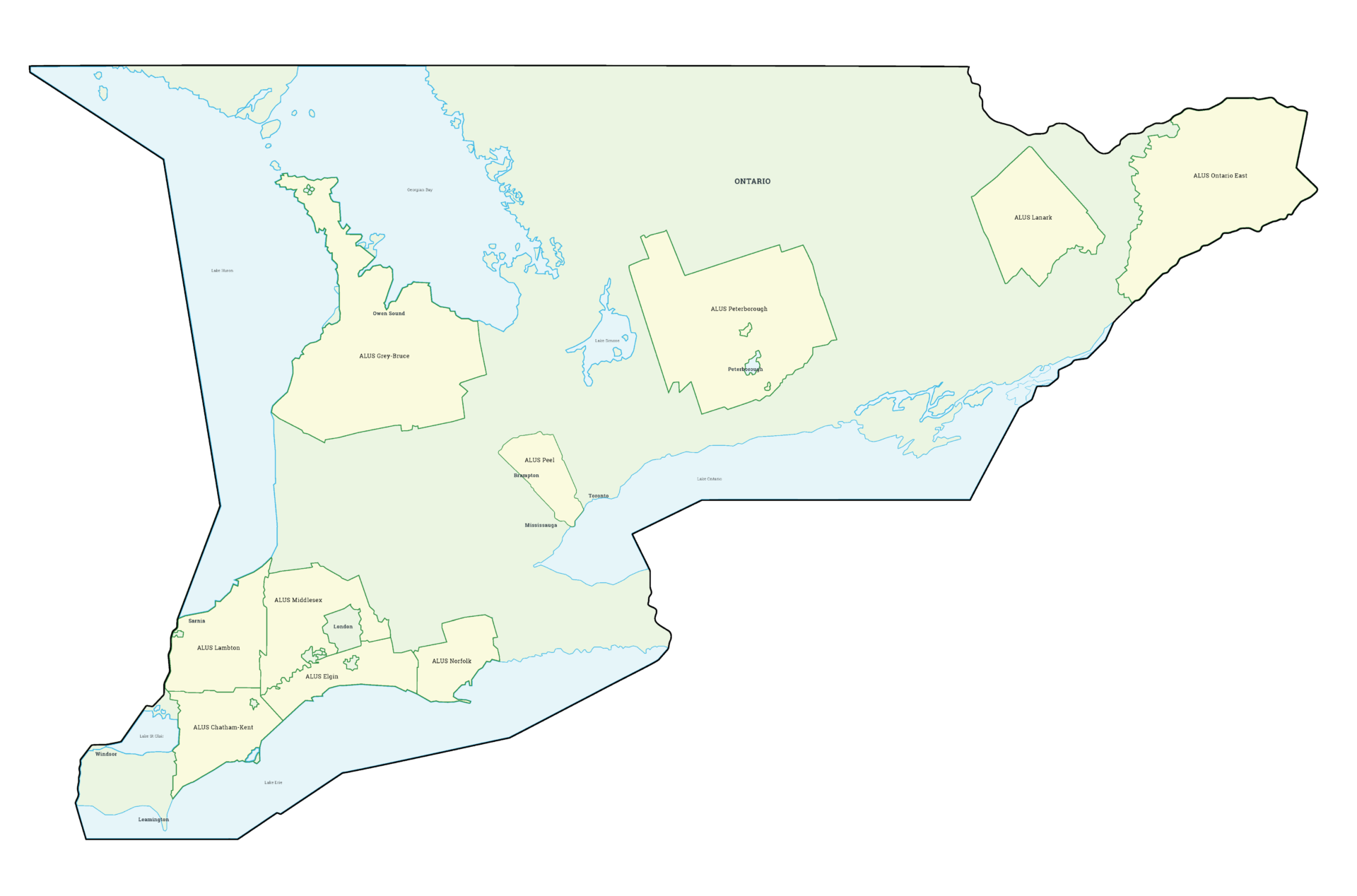
ALUS communities in Ontario touch upon some of the most environmentally and economically important waterways in the province.
The Great Lakes along with the St. Lawrence and Ottawa rivers and their watersheds are critical to local and regional economies. The health of these waterways directly impacts the health of the communities that depend on them for their wellbeing. Wetlands help capture runoff from agricultural operations, improving water quality locally and downstream, benefiting municipal water supplies and aquatic habitat.
Wetlands provide crucial services to Ontario’s economies and communities, generating substantial economic value. Services delivered by wetlands include water filtration, carbon sequestration and drought and flood mitigation. A study from the University of Waterloo calculated the value of filtration services provided by Southern Ontario wetlands to be over $4 billion.
About ALUS
ALUS envisions a future where all farmers and ranchers produce ecosystem services from nature-based solutions alongside food and fibre to help solve the crises of biodiversity loss and climate change. Through its turn-key farmer-led, community-delivered program, ALUS supports more than 360 community leaders across 39 ALUS communities in helping over 1,700 farmers and ranchers build and actively manage 52,000+ acres of nature-based projects. These projects, like wetlands, grasslands and tree and shrub plantings, help capture carbon, keep lakes, rivers and streams clean, provide food and shelter for wildlife, and better prepare communities for extreme weather events like flood and drought.
ALUS also helps businesses, governments and organizations invest in new acres of nature created on agricultural land to generate positive environmental, economic and social outcomes in the communities where they operate—one acre at a time.

